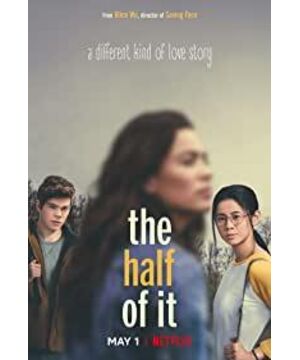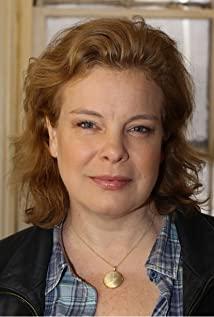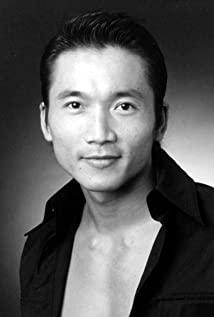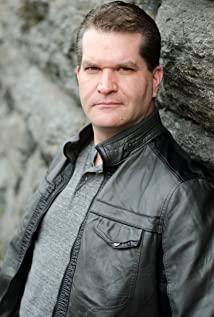Text / A squat
Triangles, getting wet in the pool, public obstructing a real boyfriend's proposal at the church... These plots sound old-fashioned and effective: you can't help but wonder: what bad romance movie is out?
But even if it is new wine in old bottles, Chinese female director Wu Siwei can arrange the plots properly: there are incomparable drama elements, and there are plots that make people laugh, think deeply, and aftertaste.
The half of it, Wu Siwei's film "Half of the Heart" was once on Netflix's "Hottest Movies of the Week" list, and many people kept the movies in their "Good-looking Ji Movies" favorites.
It is not surprising that director Wu Siwei is a lesbian herself, and her debut work "Face" with Chen Chong was also adapted from her experience of coming out with her mother as a Chinese woman. What's more, the two heroines in "Campus Love Saint" are the two heroines: Allie Chu and Esther.
However, rather than calling this film a "Ji film", I prefer to classify it in the folder of "Youth Films". It has elements of a Ji film, but focuses on young people's treatment of themselves. Confusion, exploration of life status, and solution to the proposition of "what is love" .
|| What is life?
Ellie Chu's life theme is "alternative". The living conditions of Chinese Americans who cannot integrate into the mainstream society in small towns in the United States are vividly portrayed by Wu Siwei.
Ellie's father was an engineer and a doctor, but because his English was not good enough, he couldn't find a job. The family who couldn't go to the big city could only live in a small town. His father wore a nightgown and watched on the sofa chair every day. TV, euphemistically called: learn English.
But we can't blame the father any more. After losing his beloved wife, the depressed middle-aged man would even worry about calling the power company that others would not understand his accent. Although judging from the few English lines of my father in the movie, the accent is not that difficult to understand.
Ellie herself, a precocious girl, earns pocket money by helping others with their homework, and is deeply appreciated by the literature teacher, but she stays in the town to get a scholarship and stays by her father's side. The classmates mocked her by imitating the rumbling sound of the train. The pronunciation of the Chinese surname Chu and her father's status as a railway station master made her an alternative. The jeers of "Chugga chugga Chu Chu" (the train rumbles rumble chuchu) always accompanies Ellie.
The life of Paul, a white boy, can be summed up as "ordinary". In order to pursue the campus goddess Esther, she came to Ellie to write a letter on her behalf.
This tall, stubborn and silly boy seems to have an ordinary life: a noisy family, a work-study program, a belief in God, an ordinary appearance, and the status of a football team winger who is not outstanding. For $50, he hired Ellie to write to Esther for himself. The conscientious Ellie developed a "battle plan" to help Paul understand Esther's life. close.
Esther's life is slick and well-behaved - even if she's not that kind of person at all. So "hidden" is the consistent attitude of this beauty. She had to hide her impatience with her foolish boyfriend, Trager, and her skepticism about religion.
Having a pastor father, she received the standard "American standard education" since she was a child: believe in God, excel in studies, marry a handsome white boy, and be a conscientious housewife. Who knows how this girl would appreciate the most daring brushstrokes in an outstanding painting when she was working as a waitress? Alternative, ordinary and hidden, the lives of the three people began to intersect and change because of a letter.
|| What is love?
To ask what love is, it stumped a slew of philosophers, writers, and poets. In the film, the director also used a "famous quote" about love as a quote that led to the next part of the plot. The relationship between Ellie, Esther and Paul is indeed, as Wilde said, it begins with "self-deception" and ends with "deception".
Ellie deceived herself that she was just helping Paul to chase girls, and she had no extra feelings for Esther; Paul deceived herself that he had always liked Esther and dated Esther, but then he really liked Ellie; Esther She had a hunch in her heart that the person who wrote the letter was not Paul but Ellie, but she kept letting this lie continue. At the same time, she also deceived her real boyfriend, Trager, and secretly went on a date with Paul.
Fortunately, the three chose to be candid at the same time after Trager proposed to Esther in public at the climax of the film. Ellie, who had been sitting silently on the second floor playing the piano, couldn't bear to watch Esther continue to hide herself and agreed to Trager's marriage proposal. She exclaimed "No!" and interrupted Trager's endless talk about love.
The campus male god, standard believer, and real boyfriend Trai Ge said: Love is not jealous, but patience, kindness, and humility, so he wants to propose to Esther, and Esther will become his standard wife. As for Trager himself, the white guy who's been smooth sailing obviously doesn't derive from his personal life, love is patience and humility and that sort of thing.
He is a combination of all the characteristics of a straight man with a silly hat: narcissism, ignorance of reflection, and eye-catching. He doesn't even know the real side of his girlfriend: Esther is actually a little melancholy and insecure girl, who likes English literature, is friendly, and loves painting.
The self-disclosure took turns. Ellie said that love is chaos, horror and selfishness, love is trying, pursuing and failing, and love is willing to use bold strokes to destroy a good painting in order to get an unexpected masterpiece. She asked Esther, at this moment, is it the most daring stroke you can draw to agree to Trager's proposal and continue to live your life where you hide your true self?
Before the congregation recovered from Ellie's interruption, Paul got up again and spoke the truth that only three people could understand. He said that love is not a disguise, and that he was only disguised for a few months and felt very uncomfortable.
As a believer of God, he once thought that there is only one way to love, but there are many ways to love, ways that he does not know.
Esther obviously understood what the two of them were expressing, and she slapped Paul in public - leaving the venue angrily in such a manner that was not in line with her prudence and politeness, leaving behind a blank-faced boyfriend, and a loss of disappointment. Ellie and Paul.
What is love? What does the director want to tell us about this three-person relationship that seems to be a love triangle? Is it to encourage girls to be brave and like girls? Part of it is, when Ellie puts aside her fears and unease and publicly admits to Esther that she is the one behind the letter; when Esther drives Ellie to her "secret pond", the two Individuals take off their clothes, float in the watery pool, and talk about their own life, their love and fear.
And part of it? Wu Siwei talked about the mess of love. Everyone is like a cat playing with woolen yarn. It is unclear and messy. The film ends with a bold kiss, giving Ellie the arrowhead that she likes Esther.
But what about Ellie's feelings for Paul? When the train to Iowa started slowly, Paul chased the train out of the window, Ellie thought that the actor in the movie was a fool to do so, but when the parting in the movie happened to her, Ai Li cried silently.
Any more? In fact, to a certain extent, Ellie's exploration of love is also an exploration of their own lives. I thought that she would accompany her father, Ellie, who lived in a small town, to study abroad. The new variety of sausages that Paul worked hard to develop opened up a market. Esther decided to regain her dream of painting and applied for an art school.
Paul couldn't bear to see "Treasure Girl" Ellie forever unknown and discriminated against. He encouraged Ellie to get out of town and handed over the guitar when Ellie was embarrassed on the stage; Ellie guided Esther through the wall painting to draw For her bold brushstrokes, Esther also repaid Ellie with cherishing and encouragement... They seem to be entangled in a chaotic love relationship, but in fact they have become each other's confidants, illuminating each other's life path.
The half of it, what exactly is half of it? Just like the Chinese translation of the movie "Half Understanding", Ellie, Paul and Esther all gave half of their hearts and only half in a special way, but this is not because they deliberately want to keep their emotions and cover up cover, in the calculation of the feelings of success or failure, but because they are young enough, confused enough, boldly pursue what you want, while not so sure, what is you really want.
What should love be like? How should our life be? There are always a lot of high-sounding "should" and "shouldn't", and "Qianlang" can't stop trying to tell the "back waves" what a "good" life should be like, and this movie tells young people, do n't listen to them Yes, find it yourself .
View more about The Half of It reviews











